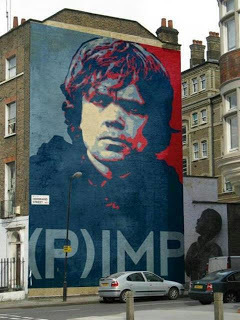Ben Tanzer's Blog, page 147
May 31, 2012
James Tadd Adcox would like to read you a story. And we think you should let him.
Published on May 31, 2012 15:29
May 30, 2012
New joint. Unborn. Red Lightbulbs.
 Fathers. Unborn children. Death. Sadness. Flash fiction? Totally. And big thanks to the Red Lightbulbs for that. Excerpt? Word.
Fathers. Unborn children. Death. Sadness. Flash fiction? Totally. And big thanks to the Red Lightbulbs for that. Excerpt? Word."He says to me, too bad it wasn't my dad, because that would be fine with me and better for the world as well. He says this because he is a friend. He also says this because he hates his dad. But he especially says this because he doesn't know what it's like to lose a father."
Published on May 30, 2012 16:20
May 29, 2012
Wherein we talk My Father's House with the terrific Paula Bomer at Rain Taxi.
 For real. All of it. We are My Father's House interview and we are so very appreciative that Paula, who is indeed most terrific, suggested we talk, and that Rain Taxi saw said discussion as fit to print. Now for some excerpt.
For real. All of it. We are My Father's House interview and we are so very appreciative that Paula, who is indeed most terrific, suggested we talk, and that Rain Taxi saw said discussion as fit to print. Now for some excerpt.PB: Both the narrator and his father have tough guy personas and yet both are artists, and in the case of the narrator, a caregiver. There’s a lot of ambivalence about masculinity and what it means, how confining it can be but also how necessary. Eventually, your narrator is allowed all sorts of release—crying, really letting go of his father, and figuring out what he needs to do next. Perhaps it was the slow painful aspect of a death by cancer; not to diminish the loss, but I’ve heard people say about certain deaths, “it was his time.”
BT: It’s funny because one reviewer wrote how there were certain ways the character managed his emotions in the book that bothered him as an editor, but then he realized that maybe his own need to be tough was affecting his ability to embrace the emotions being expressed, and that made me smile. He was the first person to touch on this thread, and now you are the second. It was a conscious thing I wanted to play with, but if I’m the only one who sees it in the text, I’m not sure it qualifies as being part of the book at all. The character does need to find a way to be sad though, and experience grief, and to embrace that tough guy persona—or not—regardless of confusing signals about masculinity and what it means to be a father or son. I don’t know that the character gets there in a healthy way, but he does get there because he’s ultimately so overwhelmed by all of it he has no choice. It’s an implosion of grief, though in this character’s case it is also the start of something, because I wanted to connect all of this to being an artist as well. When my father died, my mom and I talked about whether he might have been more successful and better able to bring more layers to his work if he could have better embraced his feelings and been less caught up in being tough and not exploring things. I wanted the character to come to understand this in the latter stages of the book as he realized that he wants to create art as well. In terms of the idea that “it was his time,” we always have to separate out people’s suffering from their actual lives. If someone is suffering, then yes, it can feel like someone’s time because you can’t bear to watch them suffer, but that has nothing to do with what they may have still done with their lives if they were healthy and how you may have yet interacted with them. From that perspective, it’s never anyone’s time.
Published on May 29, 2012 09:44
May 28, 2012
A most annual Dr. Abraham Makofsky Memorial Day shout-out.
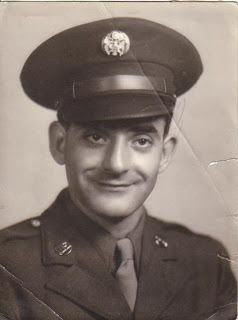 As we sit here during the waning hours of Memorial Day our thoughts are drifting to TBWCYL, Inc. spokesperson Ben Tanzer's grandfather Dr. Abraham Makofsky, who not only served in World War II, but led a long and varied life as an activist for peace, community organizer, volunteer for the American Friends Service Committee, academic and finally, near the end, short story writer. He was one of a kind. He is missed. And if you are so inclined please take a moment to read his obituary, because he should be remembered, he is here, and we appreciate the indulgence.
As we sit here during the waning hours of Memorial Day our thoughts are drifting to TBWCYL, Inc. spokesperson Ben Tanzer's grandfather Dr. Abraham Makofsky, who not only served in World War II, but led a long and varied life as an activist for peace, community organizer, volunteer for the American Friends Service Committee, academic and finally, near the end, short story writer. He was one of a kind. He is missed. And if you are so inclined please take a moment to read his obituary, because he should be remembered, he is here, and we appreciate the indulgence.
Published on May 28, 2012 18:49
May 27, 2012
Concepcion Books. Quite happening soon. So please do say hello.
Published on May 27, 2012 17:29
May 26, 2012
"A mind needs books like a sword needs whetstone." Tyrion Lannister
Published on May 26, 2012 11:47
May 25, 2012
"The comparison might appear easy, borderline obvious to you, but I could definitively feel an influence of John Irving in Tanzer's prose." My Father's House gets Dead End Follies'd. And likes it. A lot.
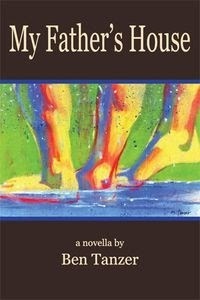 Big thanks to the Dead End Follies and the Benoit Lelievre for some most kind, and moving, words about My Father's House. Drinks on us sir for sure wherever, and whenever, we next meet. And now for some excerpt.
Big thanks to the Dead End Follies and the Benoit Lelievre for some most kind, and moving, words about My Father's House. Drinks on us sir for sure wherever, and whenever, we next meet. And now for some excerpt. "It's deliberately structured to reward patience and I thought it was pretty clever. The evolution of the narrator's trail of thoughts doesn't appear evident if you read ten pages, but if you read forty or fifty, the transformation becomes noticeable. I appreciated this particularly because it's hard to render the concept of time passing in a book, while being fair to the reader. I thought Tanzer found a very creative way to do so. His chapters are short, but resonate with each other. It's textbook dialogism, I suppose but it's applied to such a minimalistic execution, it makes it beautiful and rewarding to read."
Published on May 25, 2012 14:09
May 24, 2012
This Podcast Will Change Your Life, Episode Forty-Eight - Have You Seen Me.
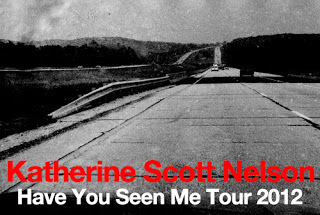 Much happy we are to be hosting today's stop on the Katherine Scott Nelson Have You Seen Me blogapalooza Tour 2012. Much happy because we quite dig the Katherine Scott Nelson and are big fans of the Have You Seen Me. So please do hit the podcast and please do rejoice in its awesomeness because we are feeling most certain that it just might change your life.
Much happy we are to be hosting today's stop on the Katherine Scott Nelson Have You Seen Me blogapalooza Tour 2012. Much happy because we quite dig the Katherine Scott Nelson and are big fans of the Have You Seen Me. So please do hit the podcast and please do rejoice in its awesomeness because we are feeling most certain that it just might change your life.
Published on May 24, 2012 16:49
May 23, 2012
Riipi. Caldwell. Legs. And interview.
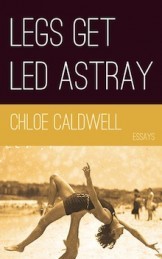
Whereas the Joseph Riipi talks Legs Get Led Astray with Chloe Caldwell at The Lit Pub.
JR: One of my favorite moments in the book is in “That Was Called Love,” a kind of love letter to New York City from Seattle, when you write: “Last night I described New York to a rock climber in Seattle. ‘It sounds like, New York is for you, what the mountains are for me.’” Since then you’ve moved back to New York (but now just outside the city). Have you found for yourself a permanent mountain?
CC: No. I think “mountains” or “homes” are specific to what you need at that time in your life. For a long time, I truly did think you could count on a place to make you happy. Like, when I moved to New York City, I was young and so affected by it that I thought it was alive. Now I see that just like people — there is not one person or place that you can get everything you want from. It’s all about compromise. If I could mix my mother’s backyard, Brooklyn, and Portland together, that would be a pretty sweet home. When I left the city to move to Washington, I thought that Seattle would be as new and exciting. But it was far from it and for a while, that was hard for me to cope with and accept. It’s like this quote by Fran Lebowitz: “When you leave New York, you are astonished at how clean the rest of the world is. Clean is not enough.”
Published on May 23, 2012 21:51
May 22, 2012
Amber Sparks is like so SunCloud.
 She is also quite To Make Us Whole from the forthcoming Curbside Splendor release May We Shed These Human Bodies. So please do hit that. All of it.
She is also quite To Make Us Whole from the forthcoming Curbside Splendor release May We Shed These Human Bodies. So please do hit that. All of it.
Published on May 22, 2012 20:32



